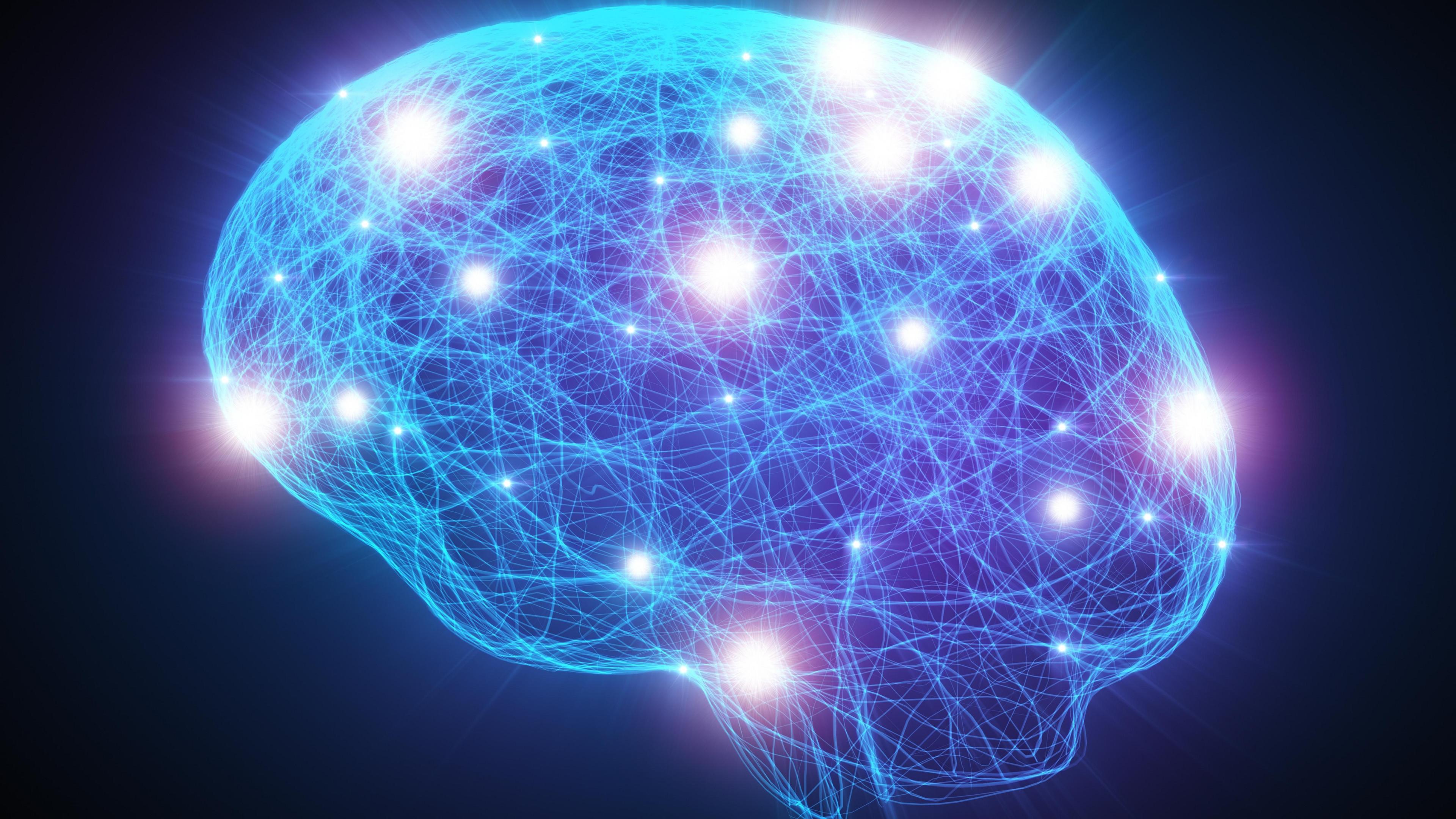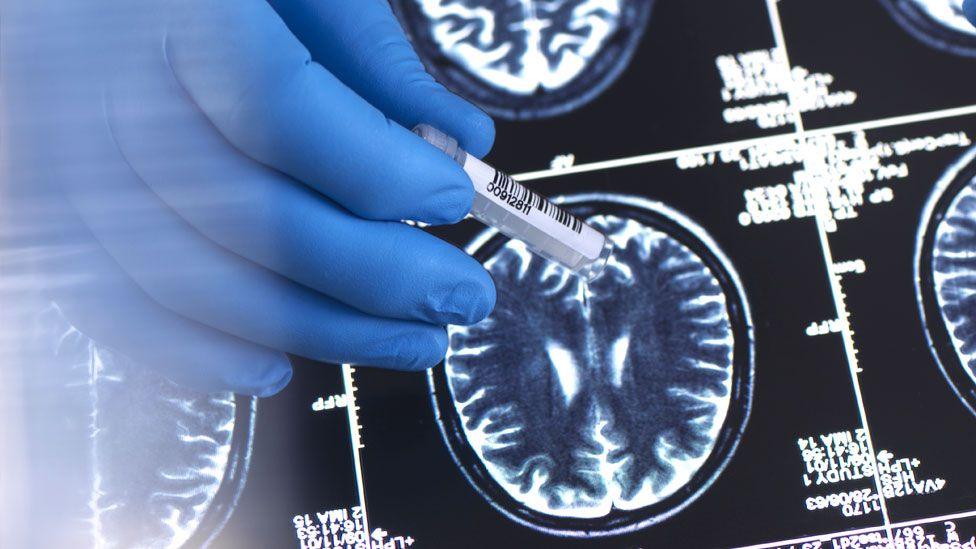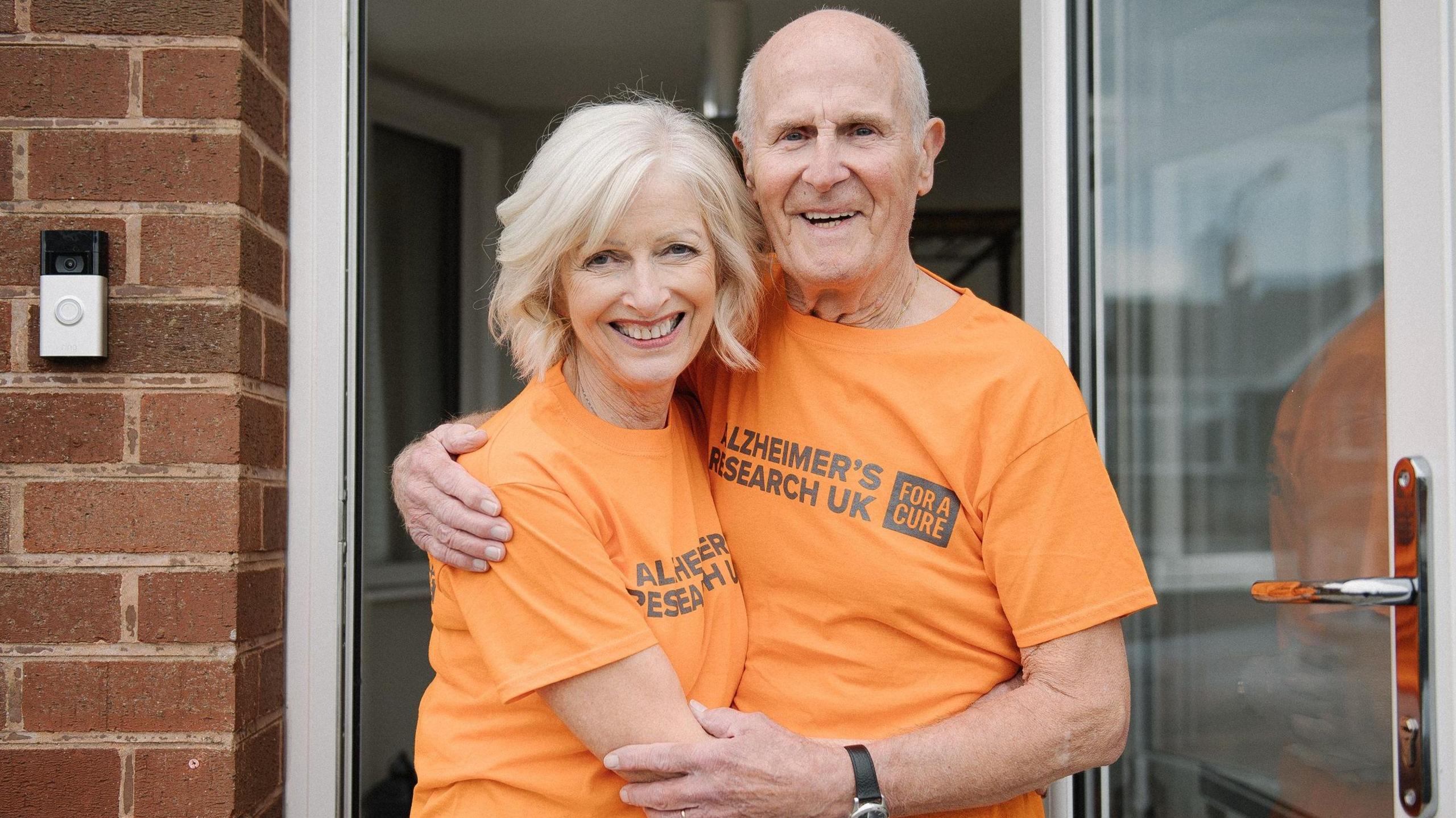Concussions 'reactivate dormant virus in brain'

Researchers hope the findings will pave the way for new treatments against neurodegenerative diseases
- Published
Repeated head injuries could reawaken a dormant virus in the brain, triggering the onset of Alzheimer's Disease and dementia, scientists have found.
Researchers from Oxford's Institute of Population Ageing, Manchester University, and Tufts University, hope the findings will pave the way for new treatments to protect against neurodegenerative diseases.
Concussions are already known to be a risk factor for Alzheimer's.
But study co-leader Prof Ruth Itzhaki said it was the "first time we have been able to demonstrate a mechanism for that process".
In the study, published in Science Signaling, external, researchers used a small 3D bioengineered human brain tissue model to test the effects of physical trauma on brain cells.
When brain tissues were exposed to repeated mild blows the dormant herpes simplex virus type 1 (HSV-1) became active.
This triggered a "beta-amyloid plaque build-up" and the formation of harmful "tau proteins" that can damage brain cells and impair memory.
Even mild brain trauma is believed to trigger the chain reaction, leading to memory loss and cognitive decline.
However, blocking an inflammatory molecule did prevent many harmful effects in lab models.
The team has previously shown, external how other common viruses can play a role in some cases of Alzheimer's.
HSV-1 can lie dormant in human cells for a lifetime.
Prof Itzhaki, who led the research with Drs Cairns and Kaplan, has been researching the virus's potential role in Alzheimer's for more than 30 years.
She said: "What we've discovered is that in the brain model these injuries can reactivate a dormant virus, HSV-1, setting off inflammation which, in the brain, would lead to the very changes we see in Alzheimer's patients.
"Understanding both the risk factors for dementia and Alzheimer's, and the mechanism by which they develop, is important in being able to target treatment and prevention at as early a point as possible."
Get in touch
Do you have a story BBC Oxfordshire should cover?
You can follow BBC Oxfordshire on Facebook, external, X (Twitter), external, or Instagram, external.
Related topics
Related links
- Published23 October 2024

- Published11 October 2024

- Published26 September 2024

- Published5 May 2024
